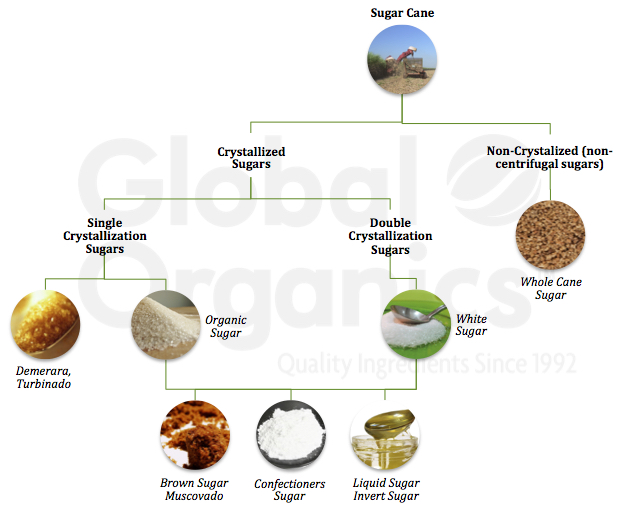Why Walking Stick Sugar Processing Chemicals Are Critical for Modern Sugar Refining
The duty of walking cane sugar handling chemicals in contemporary sugar refining can not be overemphasized, as they are integral to boosting both the performance of removal and the overall top quality of the last item. Agents such as phosphoric acid and specific flocculants are used to remove impurities, resulting in sugar that not just satisfies customer assumptions yet likewise adheres to market criteria.
Duty of Handling Chemicals
The efficiency of cane sugar processing pivots significantly on the tactical application of processing chemicals. These chemicals play a critical function in improving the efficiency and top quality of sugar extraction and refining. From the initial stages of juice removal to the final purification actions, processing chemicals facilitate different crucial procedures.
In the extraction phase, chemicals such as phosphoric acid and calcium hydroxide are employed to optimize the explanation process, assisting to eliminate contaminations and put on hold solids from the walking stick juice. This not only enhances the return yet also makes certain the clarity of the final item. Furthermore, representatives like flocculants help in the rapid settling of impurities, therefore enhancing the general process.
As the handling breakthroughs, chemicals are utilized in decolorization and formation stages. Activated carbon and ion exchange resins offer to eliminate color and smell, guaranteeing that the polished sugar meets customer high quality standards. Inevitably, the duty of processing chemicals extends beyond operational effectiveness; they substantially impact the sensory features of the end product, adding to market competition. Hence, the precise selection and application of these chemicals are essential for accomplishing ideal results in walking cane sugar handling.
Secret Sorts Of Chemicals
Walking stick sugar processing counts on a selection of essential chemicals that promote each stage of production. These chemicals play essential roles in clarifying, whitening, and detoxifying the sugar extracted from cane.
One main group of chemicals consists of flocculants, such as polyacrylamide, which aid in the clarification procedure by promoting the aggregation and settling of contaminations. In addition, calcium hydroxide is commonly employed to neutralize acidity and help in the elimination of non-sugar elements.
Bleaching representatives, such as turned on carbon and sulfur dioxide, are utilized to decolorize the syrup, leading to a more clear end product. These chemicals aid eliminate color compounds that might impact the sugar's appearance and bankability.
In addition, phosphoric acid serves as a pH regulatory authority throughout the handling phases, making sure optimal conditions for the chemical tasks entailed in sugar removal and purification.
Other essential representatives consist of edta (ethylenediaminetetraacetic acid), which chelates metal ions that can militarize unfavorable responses, and salt hydroxide, which aids in pH control throughout the refining procedure. Collectively, these chemicals boost effectiveness and make sure a premium walking stick sugar product.
Benefits for Sugar Top Quality
Frequently forgotten, the usage of particular processing chemicals significantly improves the overall high quality of walking stick sugar. These chemicals play a critical role in refining processes, making sure that the last product fulfills stringent market requirements for pureness and preference.

Furthermore, refining chemicals aid in attaining a regular granulation and structure, which are important for consumer approval. By managing the formation process, these chemicals make sure that the sugar crystals create evenly, causing a more enticing product that dissolves well in numerous applications.
Moreover, using these chemicals can boost the shelf life of cane sugar by decreasing dampness absorption and microbial growth. Overall, the calculated application of processing chemicals is essential for providing top notch walking cane sugar that meets consumer assumptions and market demands.
Environmental Impact Factors To Consider

In addition, the energy-intensive nature of sugar refining, intensified by chemical use, typically results in raised carbon exhausts. This adds to environment adjustment and raises concerns concerning the sustainability of present refining techniques. Furthermore, the sourcing of these chemicals might entail methods that endanger biodiversity, such as monoculture farming, which minimizes the resilience of farming ecosystems.

To mitigate these effects, sugar refiners are increasingly checking out lasting choices and adopting ideal techniques that minimize chemical use. Applying strenuous ecological management systems can assist ensure that the refining procedure lines up with environmental criteria and advertises biodiversity. Eventually, a well balanced approach that prioritizes both sugar high quality and ecological stewardship is essential for the long-term viability of the sugar market.
Future Fads in Refining
As the sugar market grapples with the ecological difficulties linked with typical refining approaches, ingenious strategies are emerging to boost both efficiency and sustainability. One substantial pattern is the adoption of environment-friendly chemistry principles, which focus on using non-toxic, eco-friendly handling chemicals. This change not just decreases ecological influence however likewise addresses consumer demand for cleaner production approaches.
One more promising advancement is the implementation of sophisticated purification modern technologies, such as membrane separation and adsorption procedures. These techniques enhance the quality and high quality of the sugar while minimizing the quantity of wastewater created during refining. In addition, the combination of digital innovations, consisting of IoT and AI, is changing functional effectiveness by enabling real-time tracking and anticipating maintenance, thus minimizing source waste.
Moreover, making use of spin-offs from sugar refining, such as bagasse and molasses, is getting traction. These products can be converted into biofuels or value-added items, adding to a round economic situation within the industry. Collectively, these patterns indicate a change in the direction of even more sustainable practices that not only enhance operational performance yet additionally line up with international sustainability goals, making sure the future stability of sugar refining.
Final Thought
Walking cane sugar processing chemicals are necessary in modern sugar refining, dramatically Learn More boosting the effectiveness and high quality of sugar extraction. The calculated usage of these chemicals not just enhances the pureness and taste of the last product however likewise ensures constant condensation and structure. As the market progressively prioritizes sustainability, the fostering of more information environmentally-friendly handling representatives is most likely to form future patterns in refining, inevitably causing higher top quality items and prolonged service life for consumers.

Ultimately, a balanced method that focuses on both sugar high quality and environmental stewardship is important for the long-lasting stability of the sugar industry.
Walking stick sugar handling chemicals are important in contemporary sugar refining, substantially improving the effectiveness and quality of sugar extraction.